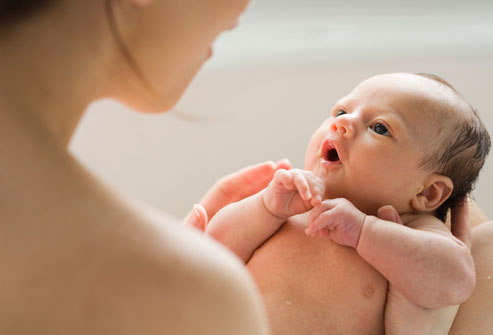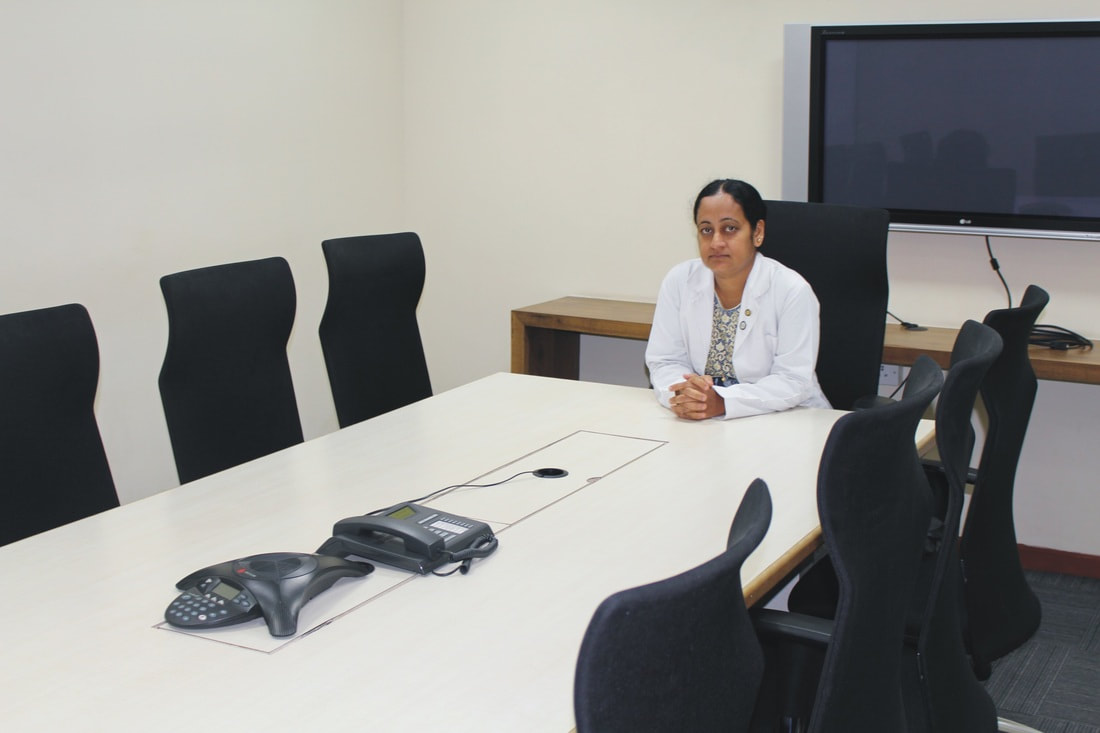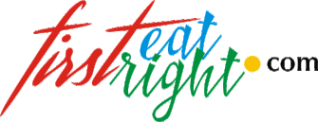|
Man is addicted to habits and a slight change in his/her daily routine frustrates and puts him/her at unease. Think about a baby who lives inside his/her mother’s womb for nine whole months and comes unto this world full of hopes and surprises! There would be a change in temperature, environment and what not-being brought into this world, the newborn is now faced with the challenges of accommodating from intra-uterine to extra-uterine. According to the World Health Organization (WHO) the early newborn period is most critical for survival of a neonate (the period right from birth up to 28 days of age) and the child is probably at the highest risk of death during this period in a world where close to 10 million deaths occur every year in kids younger than 5 years old. Almost two-thirds of such deaths happen in the neonatal period where one-third of them happen during the first day of life of the neonate, almost half within 3 days and nearly three-quarters within first week of life. Developing countries contribute to a majority of such deaths with almost 34 of every 1000 live births leading to death and our country has seen a steady decline in the number of neonatal deaths from around 53 to only 22-28 per 1000 live births. Sub-Saharan Africa ranks highest in such deaths where the child’s day of birth is also its day of death unfortunately.
Death doesn’t occur all of a sudden mostly and there are multiple clinical signs that lead to the fatality. Fever is a common manifestation of diseases and requires immediate medical attention. Other signs include lethargy, poor sucking, increased respiratory rate (more than 60 beats per min), chest retractions and convulsions (sudden, abnormal electrical activity in the brain). Hence, the first 28 days are like a test to the child’s survival-it is of utmost importance to provide the best of feeding and care to maximize the neonate’s chances of survival and a healthy existence in this world. Developed by UNICEF and WHO the Integrated Management of Childhood Illness (IMCI) approach is understanding the various underlying causes of illness. This recognition of danger signs by the parent or any other caretaker helps in getting medical attention as early as possible. The reason why there is so much insistence is because a majority of neonatal deaths occur at home in which almost 75% can be prevented if there was timely action taken, the signs of an illness recognized by the parent/caretaker and there was no delay in the choice to go for medical action. Here, in this article we would be looking at the parent’s knowledge about the kid’s health, changes in health and the capacity to seek medical help in countries around the world. Knowledge of Mothers Regarding their Neonate’s Health Status in Ethiopia As per 2016 records, under-5 mortality rates were 67 deaths per 1,000 live births and most neonatal deaths occur at home showing that still most are unable to recognize and give treatment at the right time. Most children die due to lack of knowledge of the parent and the research here assesses the mother’s knowledge on neonatal danger signs and the reasons behind such poor knowledge for being unable to save her dying neonate! 368 mothers were selected to participate in the study of which 355 of them completed the interview. Mean age of the participants was 27.7, almost 60% of them were housewives and 234 (65.9%) of them gave birth at health institutions. It was reported that of the 355 participants, 281 (79.2%) of them had information about neonatal danger sign of which diarrhea (160 were aware), fever (136) and persistent vomiting (127) were more familiar with the participants. It was seen that 68.68% moms had good knowledge about neonatal danger signs-they were familiar with three or more signs of danger. When asked about the place of care 78 mothers (33.8%) opted for home care of their sick neonate, 82 (32%) wanted to take them to health institutions, 56 (24.2%) wanted to take them to traditional healers and 15 (6.5%) did nothing. Home care was basically garlic, tenadam, a mix of lemon and ash applied on the neonate’s head for tonsils, matchstick for convulsion, tepid sponging for fever, sunlight exposure for jaundice and using coconut oil to rub all over the body for cold body. 118 mothers continued to breastfeed despite the presence of disease but 113 of them did not. The factors associated with the mom’s knowledge include the mom’s educational status, income, place of birth and source of information. Moms who gave birth in a health institution were 6.45 times likelier to take their neonates back to the institution and those who received a post-natal care (PNC) follow were 6.19 times likelier to go back to the hospital for a follow up. It was also seen that husband’s education status, husband occupation status, place of birth and PNC had a significant effect on the maternal practice for neonatal danger signs. The study clearly showed that educational qualification and work status clearly dominated the list of attributes that motivated women to seek the help of a health institution. Another study in Ethiopia on 400 mothers/caregivers had a response rate of 94.7% and the participants’ mean age was between 25 and 34 years. Almost 64% were illiterate mothers with only 7.5% completing secondary education. Almost 40% infants were between 9 and 24 weeks of age, 32% were between 8 and 16 weeks of age and only 5.5% were aged less than one week during the study period. 67.5% infants were delivered at the hospital and only 6.6% of them were delivered at home. Of the study group almost 92.8% of them reported that they take their children to the health care center and among the rest who don’t almost 34% reported high treatment cost followed by lack of money (30%) as the reason behind it. When the study group tried to categorize the mother’s knowledge about their neonate’s risk as adequate and inadequate it was observed that almost two-thirds (65.3%) of them had inadequate knowledge as they were not even able to identify more than three symptoms among the 13 symptoms of illness of newborns and young infants. Knowledge of Mothers Regarding their Neonate’s Health in India Neonatal mortality rates (NMR) have dropped significantly in our country with Uttarakhand having a minimum of 11 and Haridwar having maximum NMR of 50. In Dehradun, neonatal mortality rate is 32 per 1000 live births. The survival of the child depends on the mother’s health alongside her knowledge and skills as a mom is the ‘one’ person who has constant contact with the child monitoring his/her actions and health. The baby is said to be in danger when any of the following signs are experienced: movement only when stimulated, temperature below 35.5 °C and above 37.5 °C, respiratory rate over 60 breaths per minute, history of convulsions and history of feeding difficulty. The study conducted in Dehradun included 100 mothers for sampling but only 53 of them reported neonatal danger signs and were monitored for their observation and handling practices. Results showed that:
Knowledge of Mothers Regarding their Neonate’s Health in Saudi Arabia Infant mortality rate in Saudi Arabia is pretty low-11 deaths per 1000 live births as per 2015 results. Under-five mortality rates in this country has reached Millennium Development Goal-4 target still infant mortality rates remains higher compared to many other countries. A community-based study was conducted in Riyadh city of this country regarding a mother’s knowledge about WHO guidelines on neonate danger signs. Primary health care centers (PHCC) are located all over the city and they provide free care to most of the residents there. Sample data of all the mothers who delivered a baby or nursed a baby (as in the case of caregivers such as grandmothers, grandfathers, fathers or nannies) in the past two years were taken from these health care centers. Face to face interviews were conducted with the mothers-the mother’s knowledge and her response on the neonate’s danger signs was collected, all the participants were asked to list the signs that they found threatening to the neonate’s life, recall any signs of danger that they personally experienced with the neonate, the time from noticing any danger to presenting it at the health facility, care received at the society and outcome of the neonate’s illness. A total of 1428 women who were in the age group of 20-60 years were included in the study. 98% neonates were cared by their mothers, 33% had education up to degree level and 37% had secondary education. 87% women had attended antenatal care and 45% had 4 or more children. Results showed that:
Research Mother’s Knowledge & Practice about Neonatal Danger Signs & Associated Factors: http://www.jbiomeds.com/biomedical-sciences/mothers-knowledge-and-practice-about-neonatal-danger-signs-and-associatedfactors-in-wolkite-town-gurage-zone-snnpr-ethiopia-2017.php?aid=21314 Neonatal Danger Signs: Attitude & Practice of Post-natal Mothers: https://www.omicsonline.org/open-access/neonatal-danger-signs-attitude-and-practice-of-postnatal-mothers-2167-1168-1000401.php?aid=89908 Mother’s & Caregiver’s Knowledge on Neonate’s Danger Signs: https://www.hindawi.com/journals/bmri/2019/1750240/ Parents’ Knowledge of Danger Signs & Health Seeking Behavior in Newborn & Young Infant Illness in Southwest Ethiopia: https://www.ncbi.nlm.nih.gov/pmc/articles/PMC6308740/ Comments are closed.
|
AVOID FRAUD. EAT SMART+91 7846 800 800
|
- Home
- Written Testimonials
- Consult
- Clinics
- Blogs
-
Diet & Nutrition
- Diabetes Reversal
- IVF IUI not needed for PCOS PCOD Infertility
-
Medical Nutrition
>
-
Disease & Conditions
>
- Infertility | PCOS
- Diabetes Mellitus
- Cholesterol
- Hypothyroid
- Kidney Problems
- Hypertension
- Cardiovascular Diseases
- Liver Diseases
- Gastro intestinal disorder
- Cancer
- Metabolic Disorders
- Orthopedic Disorders
- Eating Disorders
- Dietary Recall
- Weight Record Filled By Clients
- Online Payment Transaction Details
- Online Clients Weight Check Form
- Our Program Package Service Charges
- Weight Record 2017 Clients
- Measurements sent by Clients
- Terms & Conditions Of Payment
- Thanks. Your Form is Submitted
- Video Testimonials
- Lifestyle & Wellness
- Lifestyle & Wellness Blog
- Allergy & Intolerance
- Weight Loss / Gain
- Weight Loss / Slimming Blog
-
Disease & Conditions
>
- Life Cycle Nutrition >
- Sports Nutrition >
- Integrity in Nutrition
- Knowledge Centre
© COPYRIGHT 2022. ALL RIGHTS RESERVED. FRST HEALTHCARE PVT LTD.
Dr. Nafeesa Imteyaz of First Eat Right clinic, is the Best Dietitian Nutritionist in Bangalore. Best Dietitian Nutritionist in Pune. Best Dietitian Nutritionist in Hyderabad. Best Dietitian Nutritionist in Chennai. Best Dietitian Nutritionist in Mumbai. Best Dietitian Nutritionist in Delhi. Best Dietitian Nutritionist in Kolkata.



